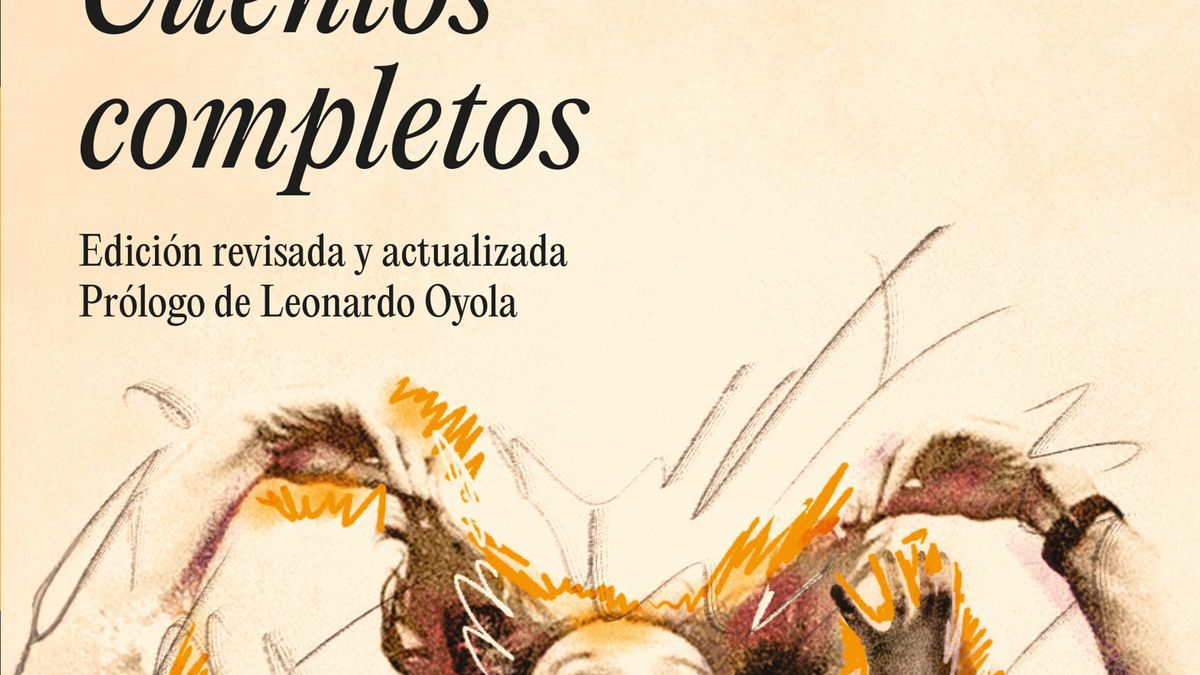The stages of an unbridled imagination (Laiseca), the cruelty in our society denounced with very harsh poetic distance (Orphee), and sexuality celebrated with humor (Steinberg), are the themes of three books that have just been recovered because they are considered relevant. Let’s look at these three cases.
The Rosario Alberto Laiseca (1941-2016) declared “great monster of our letters” He was a cult writer in literary chapels for a long time, a password in youth groups that discovered him telling horror stories about I-Sat, and The Master for his disciples, today valued authors, who called him Lai or Count, and recover his works to consecrate him as one of the greats of our Letters. Something that Laiseca had already achieved with “The Sorias”his legendary novel, the most extensive in Argentine literature.
Last year the posthumous volume was published “Hybris”name given due to the excessiveness of his work, which brings together the nouvelles “The Door of the Wind”, “Sindicalia” and “Camilo Aldao”. Now it appears “Complete stories” with all his short narrative texts (63), many of them unpublished, which show the stages of an unbridled imagination. There are the stories of “Killing dwarves with clubs” (1982), a hilarious book about which Borges said “I’m not going to read a book that has a gerund in the title.”and Laiseca answered him with a story of “Thank you Chanchúbelo” (2000).
They are, among the unmissable ones, “Dear, I’m going to buy cigarettes and I’ll be back.”, the version that served in the script of the film, where he acted, and the most recent. Actor, engineering student, harvest worker, editor in newspapers, teacher in workshops, literary critic in this newspaper. He published poems, novels, short stories and essays. He built a narrative style that he defined as “delirious realism”, where he mixes historical fantasies, colloquial language, dystopias as grotesque as they are terrifying, esoteric magical cults, perverse sexualities, fight against anti-being and constant humor. His work is related to that of Cancela, Arlt and Marechal.
Elvira Orphée
In the 60s and 70s three writers were best sellers: Silvina Bullrich, Beatriz Guido and Marta Lynch. Fifty years later they are almost forgotten, while three other writers then considered “writers for writers”, with very few readers, are today considered cardinal: Silvina Ocampo, Sara Gallardo and Elvira Orphée. The tucumana Orphee (1922-2018) praised since her first story, which appeared in the magazine South, for its poetic density, something that he later reaffirmed in his seven novels and three books of short stories. She traveled to Paris where she was a reader of Gallimard, and she brought works by Rulfo and Lispector to French.
There he met again with the painter and diplomat Miguel Ocampo (Cousin of Victoria and Silvina) whom she married and they went to live in Rome, without her friends Calvin, Moravia and Morante. The works of Orphee They are described as strange and masterful. Those now recovered add to the quality of his prose the denunciation of the opprobrious, something surprising in someone who, after the criticism of his novel “One”decided not to get involved in political issues anymore.
So much “Air so sweet” as “The last conquest of El Ángel” They are political works. In “Air so sweet” Through the conscience of three characters, it denounces the flat provincial universe, where lies, deception, falsehood, prohibitions and submissions are natural. In “The last conquest of The Angel” (1977), goes one step further, tells from the mind of a torturer his work and the group that surrounds him, concluding in the final madness of who thought himself powerful and loses control of power. It is considered one of the best novels about the dictatorship, although it was written presciently when it had not yet taken over the government.
Alicia Steinberg
The porteña Alicia Steinberg (1933-2012) after graduating from the Teaching of Living Languages, he began a long career in teaching and translation. In 2008, in a presentation in Rome, they asked him why he had started writing stories at the age of 36. He confessed that he had been writing them since he was 18, but he did not present them until he knew they were good, that they were not introductory drafts. She felt safe when she sent a book of stories to the Seix Barral contest and was a finalist, and then the same thing happened to her in the Monte Ávila publishing contest.
He decided it was time to start publishing. This is how her fourteen books appeared, including the novel “When I say Magdalena” (1992) Planeta Biblioteca del Sur Award. Shortly before, with “Amethyst” (1989) Steinberg managed to be the only finalist for the La Sonrisa Vertical Award, an erotic literature label directed by Luis García Berlanga and Beatriz de Moura. Recovery of “Amethyst”which had a musical adaptation by composer Andrés Gerszenzon, as “erotic opera with boleros.”
“Is it possible for an erotic novel to be at the same time a book of hilarious humor?”he asks Ana María Shua, prologue of this recovered work, and remember that the editor, professor and critic Enrique Pezzoni He said that “Pornography is like ice skating; At first it seems very funny, but then you realize that the same figures are always repeated.” Steinberg He knew how to overcome that tedious and irreparable obstacle by counting the nine sessions where a kind lady tells him the adventures of the pleasures of his own and those of others of a “lawyering legal doctor.”
It details the adventures of the unbridled and powerful Amethyst, the mischievous Mariolina, the short-sighted angels and the monastery of perverse monks and their strange masturbatory rituals, among nine unexpected carnal adventures. For the multiple creator Fernando Fernán Gómez, the novel of Steinberg “gives the ABCs of pleasure, which is “to contain oneself and suffer the exquisite pleasure of waiting”, a recipe that seems to have been forgotten these days.
Alberto Laiseca “Complete stories” (Bs.As., Random House, 2024, 575 pages).
Elvira Orphée “Two novels: Sweet Air and The Last Conquest of the Angel” (Bs.As., FCE, 2024, 441 pages)
Alicia Steimberg “Amethyst” (Bs.As., Hugo Benjamín, 2024, 136 pages)
Source: Ambito
I am an author and journalist who has worked in the entertainment industry for over a decade. I currently work as a news editor at a major news website, and my focus is on covering the latest trends in entertainment. I also write occasional pieces for other outlets, and have authored two books about the entertainment industry.




